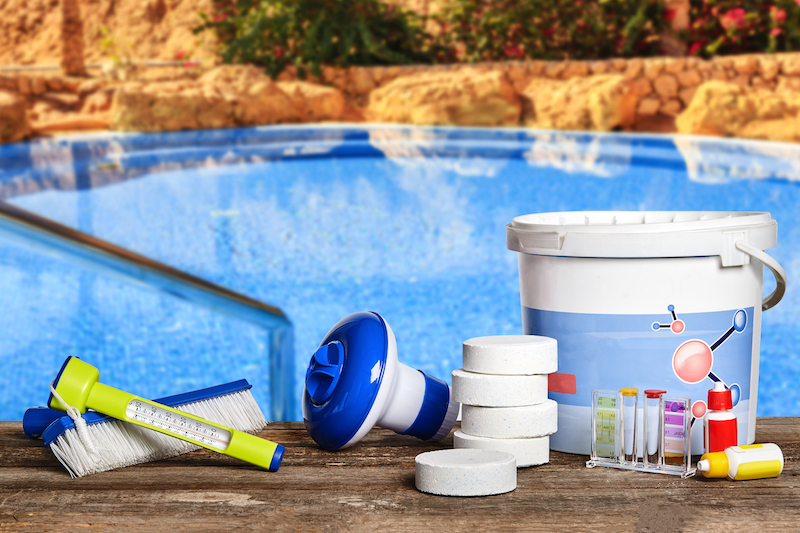There’s a lot that goes into being a pool owner. While keeping your pool healthy is the most important, having all the necessary supplies to make it a fun and safe experience is a close second. If you’re a new pool owner or are considering becoming one, you’ll want to know how much you can expect to spend on pool supplies. Dive into the essential pool supplies and their costs below to make your experience as a pool owner the best it can be.
Telescopic Pole with Interchangeable Heads
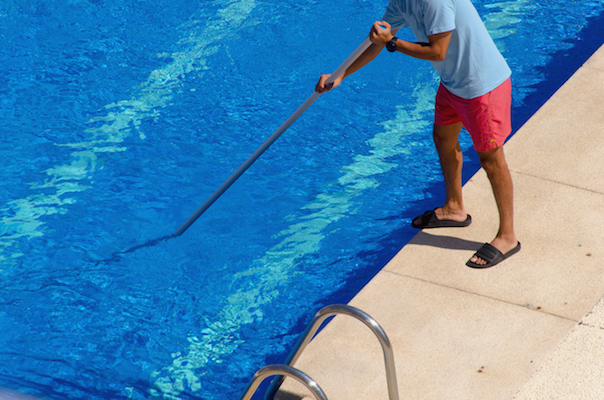
A telescopic pole, mimicking an old-style telescope, can extend and shorten to a desired length and is essential for keeping your pool clean. With the added ability to function as multiple tools, you will save money and space investing in one. Instead of having three separate pieces — skimmer, vacuum, brush — you’re able to have all in one. All you have to do is attach the appropriate head for the task at hand. This tool keeps leaves, algae, and sunken debris out of your pool.
The adjustable height of the pole will save you time and energy while cleaning. You no longer have to walk all the way around the pool to reach across or strain your back trying to reach the deep end. The adjustable pole gives you full control to clean those hard to reach areas, leaving your pool spotless.
A telescopic pole can be purchased at any local pool supplies store, along with the heads. The average cost for the pole is $20-$50 depending on the length.
Vacuum Head and Hose
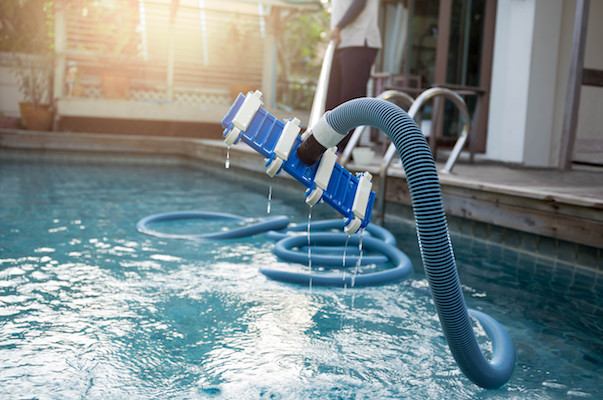
It’s suggested that you vacuum your pool at least once a week. Bacteria and debris constantly collect on the bottom of your pool and keeping up with cleaning is essential for keeping your pool healthy to use. Using a manual vacuum makes it easier to get to the hard to reach areas, but can be a time consuming and exhausting task. Investing in an automatic vacuum will save you time, energy, and leave your pool spotless for when you go to jump in.
The average cost of a vacuum can range from $200-$500 and the hose is $15. There are a variety of styles and sizes to accommodate your pool.
Brushes and Skimmer Heads
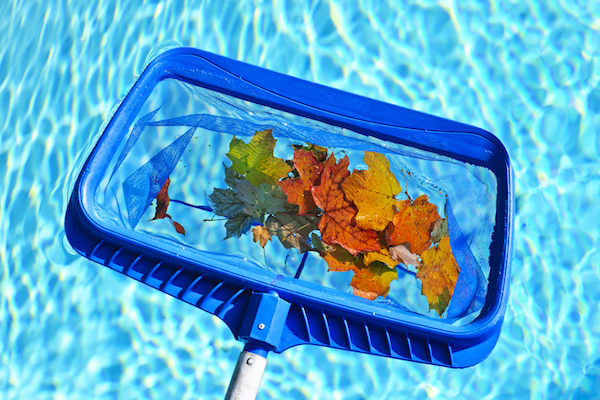
Bacteria and algae continuously collect in your pool. The bottom and walls of your pool can become lined with a thin layer of sediment. Brushing your pool on a consistent basis will help to prevent a buildup that can lead to cloudy and green water. Tip: Brush your pool prior to vacuuming in order to clean up the algae once it has settled on the bottom.
A skimmer head attachment is great for cleaning the surface of the water. Acting as a net, the skimmer will scoop and collect any loose debris floating in your pool. The skimmer is especially useful during the end of the season when the leaves begin to fall. Keeping the surface of your pool clean will prevent sediment from sinking to the bottom and will allow your jets and filter system to function properly.
Both of these heads are available as an attachment to a telescopic pole. The cost of a brush or skimmer head attachment is $15-$25.
Chemicals
Chemicals for your pool are used to minimize bacteria and prevent the risk of eye and skin irritations. Maintaining a proper chemical balance is important as too much or too little can be harmful. It is suggested that you maintain a chlorine level between 1 and 3 ppm. If you are unsure, consult a pool pro to discuss your chlorine usage or use a water testing kit that can help you monitor the levels of your chemicals.
Routinely adding chemicals to your pool can be a hassle, and if forgotten can prevent you from swimming. Investing in a chlorine floater will make your life easier. By simply adding the chlorine, the floater will distribute the chemicals around your pool on its own.
For the season, you can expect to pay on average $450 for chemicals for your pool.
Water Testing Kit
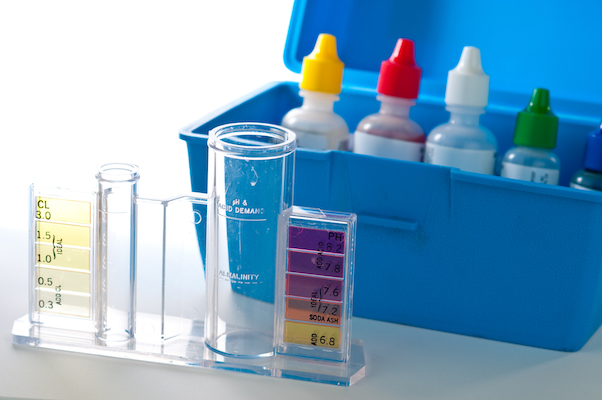
It is suggested that you test your water weekly to make certain that your chemical levels are balanced. Pool stores offer this service, but having one of your own will save you time and money. Testing warns you if you need to add more chemicals to help fight the bacteria and algae in the water. Liquid testing kits are the most accurate since you are comparing the actual water to the standard. As an alternative, water testing strips are available for convenience, but they aren’t as accurate.
There are a variety of testing kits available, ranging in cost and performance. A basic water testing kit is $30 on average.
Heater
In order to get the most out of your pool, you will want to invest in a pool heater. Pool heaters allow you to use your pool even on the coldest of days. There are a variety of heaters available and choosing the right one is important for the environment and your wallet. Check out which heater is best for your pool by reading this article.
Pump
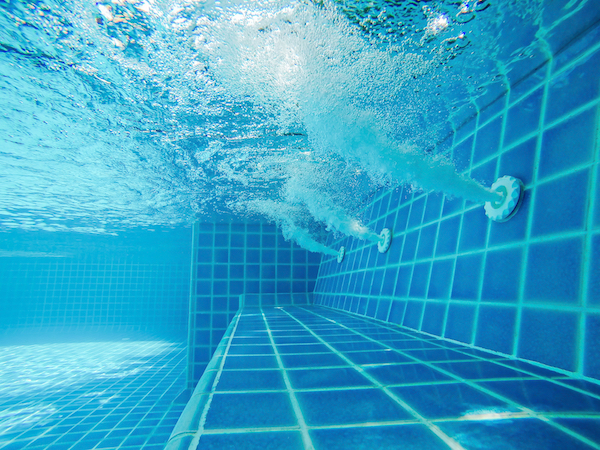
Pool pumps circulate the water to help with filtration and the heating of your pool. Most popular today are variable speed pumps, which have the ability to keep your water gently flowing to maintain clean water, or can quickly assist in clearing out the algae that has been collecting. Tip: Cleaning out your skim basket consistently will help to maintain the flow of your water and allow the pump to do its job.
Depending on the size of your pool, the cost is going to vary for your pump. Pool pumps can range from $500-$5000.
Caulking/Grout
Having extra caulking and/or grout handy can save your pool from developing major leaks. Taking action right away through repairing troubled areas can help prevent future issues. When you’re closing your pool especially, making quick repairs can save you costs come opening time.
Caulking and grout can be found at any local hardware store and the average costs is $5-$20 between the two products.
Extras: Diving Board, Slide, Ladder, Stairs
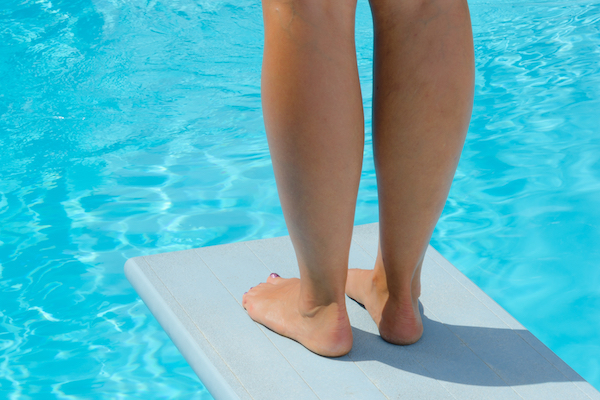
So long as your pool is healthy and you are able to swim in it, adding physical amenities will make your experience that much better. Adding stairs and a ladder will make it easier to get in and out of the pool — no more scraped knees or water up the nose. Most pools are built-in with stairs so it will be included in the cost, and a ladder can be added for around $250.
Diving boards and slides will add timeless entertainment to your pool. The average cost of a diving board is $800-$1000 and the average cost of a slide is $2000-$4000.
With a variety of toys and structures, customizing your pool to make it fun for your family is easy. Creating a fun experience for your pool is important, but can’t be done unless your pool is clean. Maintaining the health of your pool will extend its lifetime ultimately extending the usability.
If you need any advice about your pool or want someone to maintain it for you, get in touch with a pool pro by clicking on the banner below. Simply enter your project details and we’ll connect you with verified companies in your area.
